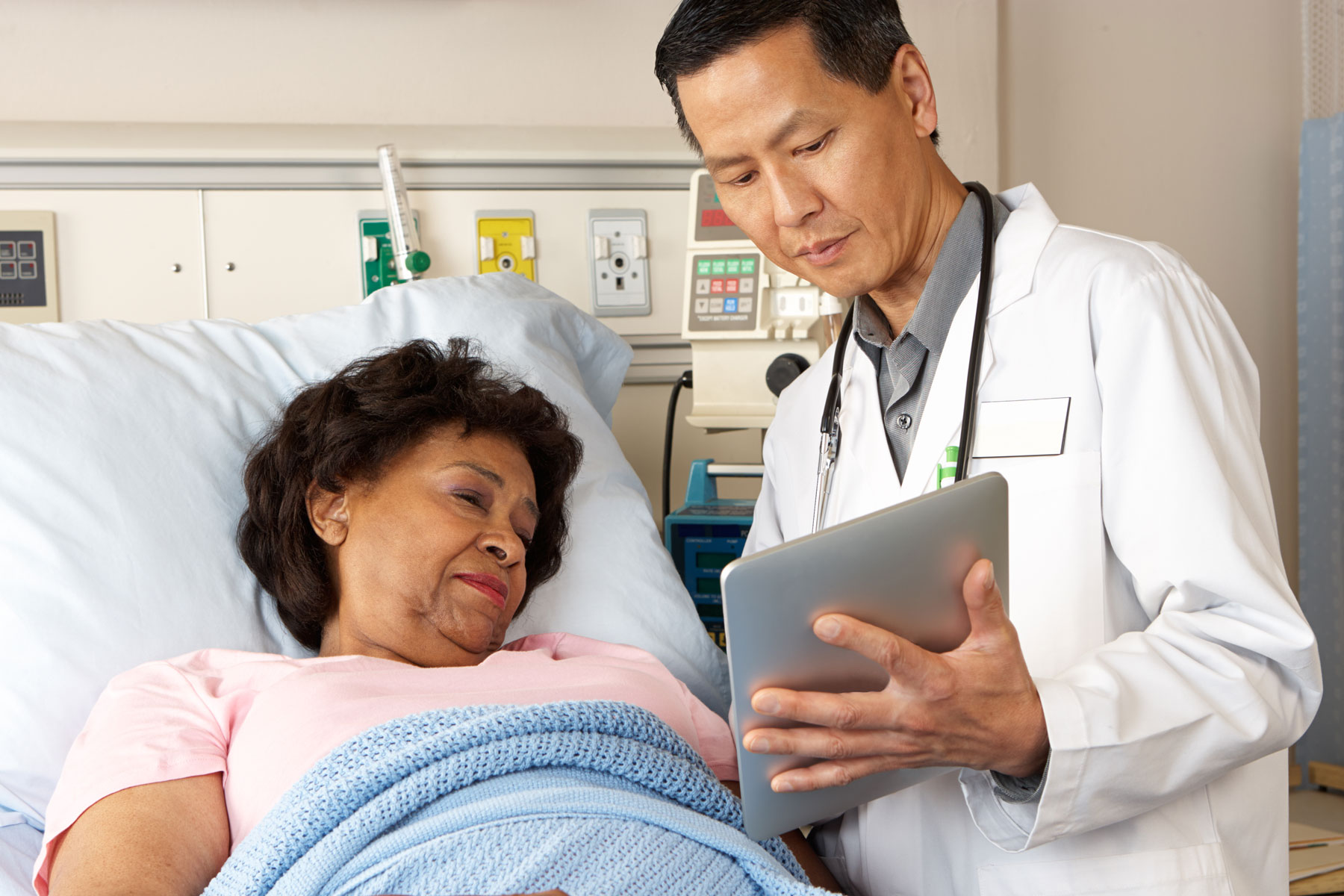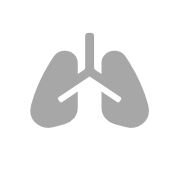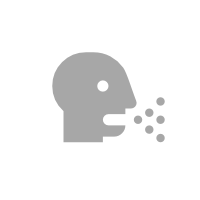
COMMUNICATION
Education during a flare-up
Healthcare professionals often provide education to you and/or your family about various matters related to your lung condition. Education may be provided in various forms, often via simple conversations as relevant issues arise. For example, if someone notices you are breathless after walking to/from the bathroom, you might be taught some relaxation breathing techniques and provided with a handout for your reference.
Click on the tiles below to learn more about some of the topics commonly discussed during lung flare-ups:

Breathlessness

Cough

Mucus

Fatigue

Sleep

Smoking cessation

Physical activity

Diet and nutrition

Oxygen therapy

Mental health
Do you find it hard to understand information about your healthcare? It’s OK to ask your healthcare team to explain in simpler terms.
Communicating with healthcare professionals during a flare-up
Although there may be increased opportunities for education about your lung condition while you are in hospital, lung flare-ups are also times where people can struggle to digest and retain new or unfamiliar information. You might also find it hard to ask the questions you want answered, often only realising once the correct person has left your bedside area. This is quite normal and influenced by many factors:
- Feelings of anxiety and distress caused by increased difficulty to breathe
- Reduced and poor quality sleep, feelings of frustration
- Being unsettled in an unfamiliar hospital environment with removal of usual comforts (people, clothes, personal items)
- Fatigue and tiredness from participating in healthcare assessments and treatments
- In people with reduced oxygen levels, altered mental state / confusion.
Consider some of the following tips below to try improve your communication with the healthcare team during a lung flare-up:
Before interaction
- Request a carer to attend a healthcare discussion with you. You might request that they moderate the discussion on your behalf.
- Consider if it is more beneficial to postpone the discussion with your healthcare professional.
During interaction
- Either you or request another to take down key points during an important discussion.
- Notify when you feel unable to continue participating and agree on another time to continue.
- Ask your healthcare professional to talk slowly and use simple language.
- At the end, request for:
- Written summary of key points
- Helpful resources
- Contact details of the health professional to clarify further queries
After interaction
- Review the discussion you had in further conversation with your carer.
- Keep a log of questions as soon as they arise. Have this easily accessible so they are available at your next contact with the relevant healthcare professional.
- Requiring repetition is acceptable and beneficial for learning.
For healthcare professionals
Lung flare-ups are major events for people with COPD. Multiple educational needs are often identified during the time of hospitalisation, however delivering effective education during this time can be challenging. Not only are patients and family members often overwhelmed by new information from multiple members of the healthcare team, but patients can often experience anxiety, distress and altered cognition which can impact upon information retention. Direct patient contact time is often limited and it can be challenging to ensure education occurs at an ‘ideal’ moment for meaningful engagement. Some healthcare professionals, particularly those with less experience working in the area of respiratory medicine, may also have less knowledge of the specific educational topics that are crucial for people affected by lung flare-ups. It is important to identify if this is the case in your area as the quality of education and experience of healthcare professionals is known to significantly impact upon the success of self-management strategies after discharge (e.g. uptake of pulmonary rehabilitation).
Lung Flare Care has been designed to help address some of these issues in the following ways:
- It can be referred to at any time during the hospitalisation period either in conjunction with healthcare professional advice or to supplement advice during times when personal advice may be unavailable.
- Patients, family members and/or carers can have access to the same information to avoid mixed messaging.
- Access useful resources and links to ensure a better continuation of care during transition such as discharging from hospital (e.g. our early physical reactivation plan).
- Advise your patients to read certain sections (e.g. pulmonary rehabilitation) when less experienced staff might be covering for staff absences to ensure they receive high quality information from experts in the field.
Importantly, Lung Flare Care is not intended to replace the role of the multidisciplinary healthcare team.